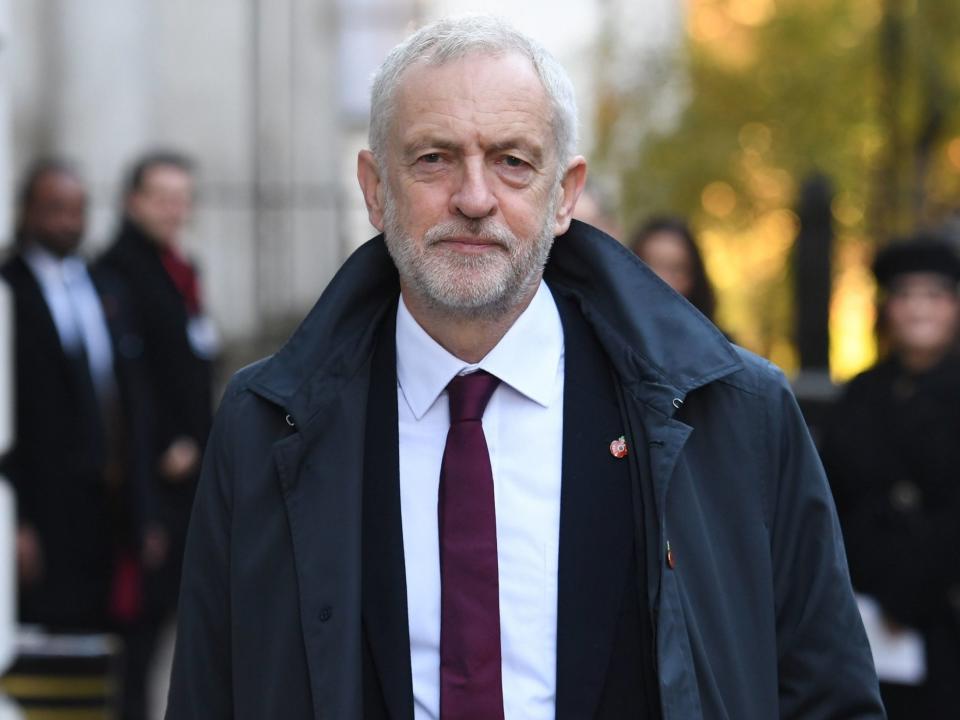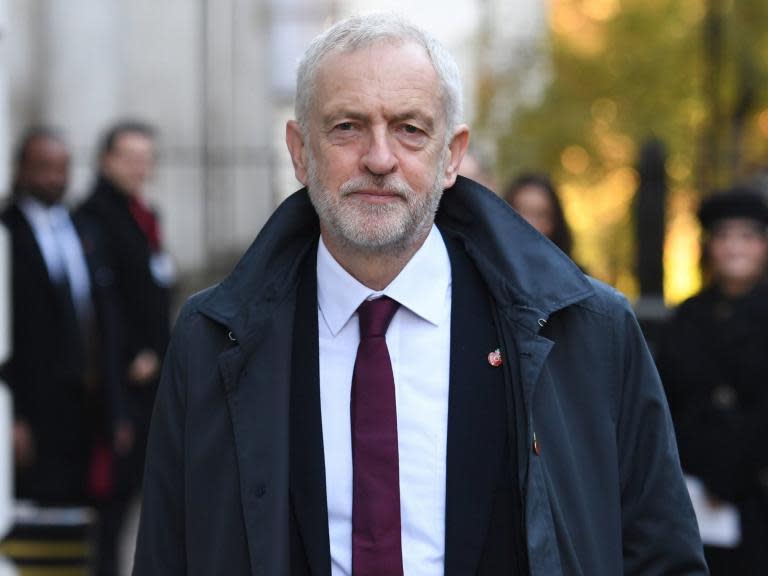It would be an act of historic irresponsibility for Labour MPs to force Britain out of the EU without a deal
Is Theresa May still prime minister? This is what journalists at Westminster ask if they have been in a meeting and off Twitter for more than 10 minutes. Well, at the end of a week of political and constitutional crisis, yes she still is.
She has concluded a withdrawal agreement with the EU and secured the cabinet’s support for it. She has lost two cabinet ministers and may yet face a vote of no confidence from her MPs, although whenever the hard Brexiters say a number, referring to the letters that have been sent to Sir Graham Brady, I mentally halve it. And if there is a vote of confidence next week, she will probably win it.
After that, though, comes the hard part. She has to win a vote in the House of Commons on the Brexit deal. It does not look possible at the moment. Jeremy Corbyn and Keir Starmer, the shadow Brexit secretary, say Labour will vote against it. So will many Conservative MPs. When the prime minister made her statement in the House on Thursday most of the early questions from her own side were hostile.
It is quite easy to see 100 Tory MPs voting against the deal. They are not amenable to pressure from normally leadership-minded local associations: this deal is fantastically unpopular with the Tory party in the country. When May went on a radio phone-in on Friday morning, the first caller was a Tory councillor who asked her to resign and the last was a Tory who compared her to Neville Chamberlain.
Tory MPs cannot be frightened into line by the prospect of leaving the EU without a deal: most of them sincerely believe that it would be better to do so than to sign up to this deal. For them, the economic dislocation would be a price worth paying and perfectly manageable for a large developed nation such as ours.
If 100 Tories vote against the deal, plus the 10 DUP MPs, who seem to have decided that a hard border with the Republic of Ireland is preferable to more checks on goods coming to Northern Ireland from the rest of the UK, then the prime minister needs almost as many opposition MPs to vote for the deal to get it through. So far, she has perhaps 20 Labour MPs, led by Caroline Flint and Lisa Nandy, and maybe Sylvia Hermon, the independent unionist for North Down.
In a rational world, it should be straightforward to win over more. Labour, the Scottish National Party and the Liberal Democrats say that leaving the EU without a deal is the worst option. It would mean checks on goods at ports, a hard border in Ireland and an immediate economic shock in March next year.
Yet they say they will vote against the deal in order to try to get a better one or to stop Brexit altogether. But what if a different deal isn’t possible, or if they cannot delay or stop Brexit?
And what, in any case, do Corbyn and Starmer mean by a “better” deal? They say that this deal does not pass their six tests, but those tests are meaningless and designed to be failed. Of course leaving the EU cannot provide the “exact same benefits” as staying in. If pressed, Labour people will talk about workers’ rights, or consumer rights or the environment but if you ask for the relevant page number of the withdrawal agreement you will not get much of an answer.
For Labour MPs, there are two unavoidable facts. One is that May’s deal is close to what Labour wants, namely to keep the UK in a close economic relationship with the EU for the foreseeable future. The other is that the government cannot be forced to go back and change it, even if that were possible.
At Prime Minister’s Questions on Wednesday, Corbyn implied that he shared Tory Eurosceptic fears that the UK would be trapped in the Irish backstop for ever. It would help if we journalists called it “the guarantee of an open Irish border” rather than the jargon “backstop”, but the point about it is that the EU will not do a deal unless it is included.
If the deal cannot be changed, some Labour MPs support another referendum as a possible route to abandoning Brexit altogether. It is hard to see how this could come about without a change of government, but even if it could I doubt that there is a majority in the Commons for it.
That leaves a general election as the only way to avoid making the choice now. And that would require about 12 Tory or DUP MPs to vote for a Labour motion of no confidence in the government (different from an internal Tory vote of no confidence in the party leader). That seems unlikely, but who knows what some of the DUP, or the extremes of the pro and anti Brexit wings of the Tory party, might do?
But if there is no renegotiation, no second referendum and no general election, then the choice will come down to May’s deal or leaving without a deal.
This is a big moment in British history. My view is that it would be irresponsible for Labour MPs – and SNP and Lib Dem MPs – to vote for a no-deal Brexit. If they are rational, they should vote for the deal. But I am not confident that rationality will prevail.

 Yahoo News
Yahoo News 

